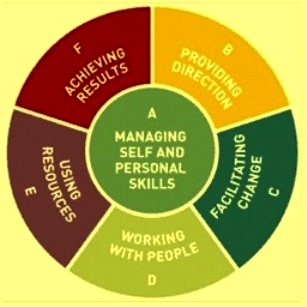Guiding with Vision: Abilities for Tomorrow’s Innovators

In the current swiftly shifting environment, the call for strong leadership is rarely been more stronger. As organizations navigate through difficulties and confusions, the skills needed to lead efficiently are changing. Leaders are expected not only to direct teams but to encourage, innovate, and foster a environment of teamwork. This article will examine these critical leadership skills that every professional should master to excel in their positions and advance their organizations onward.
Starting with decision-making and emotional intelligence to clear communication and adaptability, these abilities are critical in facing the obstacles of current leadership. Knowing how to lead with vision and nurturing trust and authority within teams can make the impact. As we delve into the leading leadership skills, you'll find practical insights and strategies on how to enhance these competencies and transform into a more influential leader.
Essential Leadership Competencies
Successful management depends on a unique blend of skills that enable leaders to guide their groups toward success. Included in these skills, emotional intelligence is a critical skill. Leaders with strong emotional intelligence can identify their personal emotions and those of their team, fostering a supportive work environment that promotes cooperation and confidence. This skill not only improves interpersonal relationships but also enables leaders to handle complex interactions and take well-considered decisions.

Another important competency is effective communication. Exceptional managers know that concise and direct communication is the foundation of successful teams. This involves not just sharing data but also actively listening to their team's input, allowing for an honest dialogue of ideas. By mastering the art of clear communication, managers can ensure that their vision is comprehended, connecting their group's efforts with organizational goals and fostering an inclusive culture where every voice is valued.
Flexibility is also a necessary skill in the current rapidly changing work landscape. Managers often face unexpected challenges and changing demands, and their ability to adjust plans and approaches is key for maintaining group cohesion and efficiency. An adaptable manager promotes adaptability among their team, inspiring strength and creativity, which are key to succeeding in uncertain times. people management and leading their teams through shifts are hallmarks of effective leadership in the contemporary landscape.
Nurturing Essential Leadership Skills
To thrive as a leader in the current adaptive work environment, developing essential leadership competencies is imperative. Among these, adaptability stands out as a key trait. Managers who can adjust their strategies and methods in response to changing situations demonstrate strength and flexibility. This trait not only allows leaders to shift in challenging times but also motivates their teams to welcome change as a means to creativity.
Strong communication is another pillar of effective management. The ability to articulate ideas coherently and hear intently fosters an environment where team cooperation prospers. Leaders who emphasize communication build trust and create a climate of honesty, which is essential for team-based problem-solving. Additionally, refining this ability allows managers to express their objectives, aligning their team around shared goals and inspiring them to work towards a collective purpose.
Another essential competency is EQ. Managers who possess a high degree of EQ can handle interpersonal dynamics with compassion and sensitivity. This capability enhances dispute management, as emotionally intelligent leaders can identify and tackle issues before they intensify. By developing the ability to understand and control their own responses, as well as those of their team members, leaders cultivate an atmosphere of help and collaboration that drives team performance and strengthens relationships.
Steering in a Changing Environment
In the current fast-paced world, adaptability has emerged as a crucial leadership skill. Executives must navigate constant shifts in technology, market forces, and employee expectations. This capability to adjust strategies and embrace transformation not only enhances group resilience but also places organizations to seize new possibilities. Effective leaders proactively seek out creative solutions and encourage their teams to remain flexible, fostering an environment where innovation thrives.
EQ plays a crucial role in leading through ambiguity. By comprehending and regulating emotions, leaders can more effectively support their teams during challenging times. This awareness allows them to address conflicts, recognize concerns, and maintain morale. When leaders exhibit emotional intelligence, they build trust and dedication, creating a cohesive team that is ready to tackle challenges head-on and adjust as needed.
Finally, robust decision-making is paramount in a changing environment. Leaders must consider risks and benefits carefully while considering the diverse viewpoints of their team members. By cultivating an collaborative decision-making process, they empower their teams to share insights and assist to solutions. This team-oriented approach not only enhances the quality of decisions made but also strengthens a culture of shared ownership and accountability, essential for succeeding in an constantly changing landscape.
